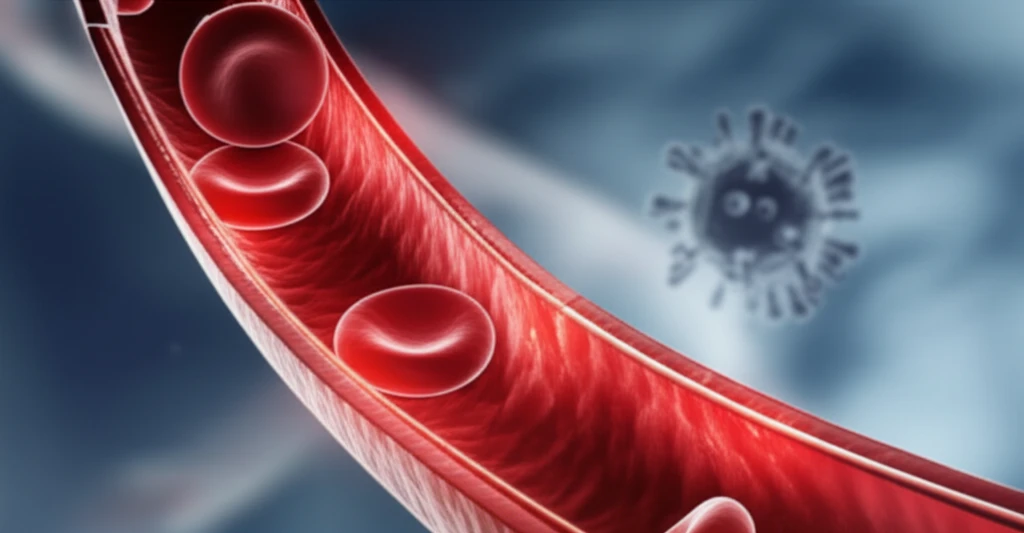
Inflammation's Hidden Link: Can a Simple Blood Test Predict Your Cancer Risk?
"Research reveals how high-sensitivity C-reactive protein (hs-CRP) levels could signal increased cancer mortality in heart patients, prompting earlier detection strategies."
Inflammation is your body's natural response to injury or infection. However, when inflammation becomes chronic, it can contribute to a range of diseases, including cardiovascular issues and even cancer. High-sensitivity C-reactive protein (hs-CRP) is a key marker of inflammation in the body, easily measured through a routine blood test.
While the link between inflammation and cardiovascular disease is well-established, emerging research suggests that inflammation, as indicated by elevated hs-CRP, might also play a significant role in cancer development and progression. Understanding this connection is crucial for identifying individuals at higher risk and implementing preventative measures.
This article explores the findings of a recent study investigating the long-term impact of hs-CRP levels on cancer mortality in patients with stable coronary artery disease (CAD). We'll break down the research, explain what it means for your health, and discuss how hs-CRP testing could become a valuable tool in proactive healthcare.
Hs-CRP: An Early Warning Sign for Cancer?

A retrospective study published in the Circulation Journal analyzed data from 2,867 patients with stable CAD who underwent percutaneous coronary intervention (PCI), a procedure to open blocked arteries. Researchers divided patients into two groups based on their hs-CRP levels: those with levels below 0.10 mg/dL and those with levels at or above this threshold.
- Patients with hs-CRP levels of 0.10 mg/dL or higher had a significantly higher incidence of both all-cause mortality and cancer death compared to those with lower hs-CRP levels.
- Multivariable analysis showed that higher hs-CRP was independently associated with a greater risk of cancer death, even after adjusting for other risk factors like age, smoking, and kidney disease.
- Specifically, elevated hs-CRP was linked to increased deaths from gastrointestinal and lung cancers.
Taking Control of Your Health: What This Means for You
The study highlights the importance of understanding the link between inflammation and overall health, particularly for individuals with existing cardiovascular conditions. While hs-CRP is not a direct indicator of cancer, elevated levels can serve as a warning sign, prompting further investigation and proactive health management.
If you have stable coronary artery disease or other risk factors for heart disease, talk to your doctor about getting your hs-CRP levels checked. Discuss lifestyle modifications, such as diet and exercise, that can help reduce inflammation. Early detection and intervention are key to improving long-term health outcomes.
This research encourages a more holistic approach to healthcare, where inflammation is recognized as a critical factor influencing multiple aspects of health, including cancer risk. By monitoring hs-CRP levels and addressing underlying inflammation, individuals can take proactive steps to protect their well-being.
